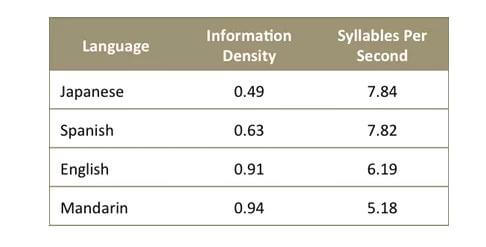Pra vocês não acharem que a vida é só fofura ![]()
O post Agora é você… apareceu primeiro em Mentirinhas.

Let us know if you have any interesting and attainable new year’s resolutions here.
I use one of those old phones where you type with numbers—for example, to type "Y", you press 9 three times. Some words have consecutive letters on the same number. When they do, you have to pause between letters, making those words annoying to type. What English word has the most consecutive letters on the same key?
Stewart Bishop
We can answer that question with the following headache-inducing shell command, which finds all words in a given list which use the same key a bunch of times in a row:
cat wordlist.txt | perl -pe 's/^(.*)\$/\L\$& \U\$&/g' | tr 'ABCDEFGHIJKLMNOPQRSTUVWXYZ' '2223334445556667777888999' | grep -P "(.)\1\1\1\1\1"
The winner, according to this script, is nonmonogamous, which requires you to type seven consecutive letters (nonmono) with the "6" key.[1]It's actually tied with nonmonotonic. These no doubt both lose to more obscure words which weren't in the wordlists I used.
Phone Keyboard Sentences
It's rare for a word to have all its letters on the same key; the longest common ones are only a few letters.[2]Like "tutu". Nevertheless, using only these words, we can write a high def MMO on TV, a phrase whose words use only one number key each.

There are plenty of other phrases like this, although some of them are a bit of a stretch:

Typing issues like this aren't limited to old phone keyboards. For any text input system, you can find phrases which are weird to type.
QWERTY Keyboards
It's a well-known piece of trivia among word geeks that "stewardesses" is the longest common word you can type on a QWERTY keyboard using only the left hand.
In fact, it's possible to write entire sentences with just the left hand. For example, try typing the words We reserved seats at a secret Starcraft fest. Weird, huh?
Let's take a look at a few more sentences—written with the help of some even messier shell commands and Python scripts[3]I constructed these sentences by searching text logs for sentence fragments that fit a particular constraint, then randomly connecting those groups together using a technique called Markov chaining. You can see the code I used here.—which follow various constraints:
Left hand only


Right hand only


Home row only



Top row only


And lastly, if anyone wants to know why you're not more active on social media, you only need the top row to explain that you're ...

 Por isso que quando a Sra Coala viaja, vou pra casa da minha mãe.
Por isso que quando a Sra Coala viaja, vou pra casa da minha mãe.
O post Um pouco de tranquilidade apareceu primeiro em Mentirinhas.

Randall Munroe has finally finished Time, his 3,000+ frame slow-motion animation that began life as wordless, enigmatic single-panel XKCD installment. Since then, the panel has been slowly, slowly updating itself, running out its course over several months. Geekwagon has collected the whole series in an easy-to-control window, and the story, taken as a whole, is a beautiful and odd existentialist parable touching on the discovery of geographic knowledge; cultural first contacts; environmental disaster, friendship and ingenuity. (Thanks, @dexitroboper!) ![]()

A couple of things. First off, ‘Close but no WiFi’ is something my cousin Nab said once, and it got me thinking about other sayings. Secondly, yes, some of these don’t quite make sense if you think about them too long—some are just meant to be funny. Also, ‘Don’t bite the hand…’ came to mind when thinking of the Google RSS debacle, and for some strange reason when I look at ‘Never judge an app by its icon’, I think of Marco Arment’s Bugshot (I know the story behind it, so in the words of Marco “Don’t email me.”). Also, normally with a post like this I’d ask for y’all’s ideas on other ones, but I plan on doing another set, so I don’t want to cheat by seeing some other great ones. ;) Thanks for reading this whole thing.

Lembra da Mary GrandPré? Não?
Ela é a moça que fez as ilustrações das capas dos livros de Harry Potter que foram vendidos em toda a América, inclusive aqui no Brasil.
Algumas ilustrações da autora, jamais publicadas nos livros de Harry Potter, foram divulgadas em uma galeria para conhecimento do público.
E já adianto: as ilustrações são LINDAS!
Confira as ilustrações logo abaixo e se apaixone um pouco mais pelo trabalho dessa artista! (:


Imagine que você está em um aeroporto. Ao seu lado, um casal conversa em uma língua que você não conhece.
Apesar de não entender nada, uma coisa é clara: eles falam rápido, muito rápido.
-”Piripipipi bóbóbóbó, firififi, pererepépé…”. Soam animadíssimos, como se estivessem conversando sobre algo realmente incrível.
Isso já aconteceu antes, naquela reunião com os gringos. Parece até que combinaram de falar bem rápido, só pra dificultar a sua vida.
Por que os espanhóis parecem falar sempre a 200km/h? E os Italianos a 250 km/h?
Por que o japonês parece uma metralhadora de sílabas como onomatopéias de filmes de karatê? Raiá, rói, chimbará, hup.
Para resolver esse mistério, pesquisadores da Universidade de Lion, na França, convocaram 59 homens e mulheres com línguas nativas diferentes (inglês, espanhol, japonês, françês, alemão, italiano e mandarin) para um teste.
01. Cada participante leu 20 textos, em sua língua.
02. Depois, os pesquisadores contaram o número de sílabas em cada língua e criaram uma relação entre o número de sílabas e o volume de informação ou significado contido nelas.
Ou seja, conseguiram atribuir um valor de “densidade” ou “prolixidade” (se é que existe essa palavra) para cada língua.
Algumas falam muito para dizer pouco, outras falam pouco para dizer muito.
Por exemplo, um “aiá” em mandarin pode significar “o homem que subiu a montanha para pegar uma flor”.
E um “hofdtanggerlishstrassesprunkt” em norueguês pode significar “oi” (palavras obviamente inventadas, só pra você entender o espírito da coisa).
03. Os resultados:

04. Conclusão I: quanto mais densa uma língua (onde cada sílaba tem muito significado embutido), mais lentamente é falada.
05. Conclusão II: essa é um mistério, mas todas as línguas entregam mais ou menos a mesma quantidade de informação no mesmo tempo. Só que as mais densas precisam falar menos e a menos densas, mais. Em um filme chinês legendado em espanhol, os atores falariam pouco, mas seriam muitas legendas.
06. Conclusão III: explicando o mistério do começo do post, em que os gringos soam sempre muito rápidos, é justamente por causa da baixa densidade de informação. Um fenômeno psicológico, você não entende nada, as sílabas viram apenas sons e você não consegue decodificar nenhuma informação e acha que está tudo muito rápido.
E essa é história por trás das diferentes densidades das línguas. Já as diferenças entre a densidade de cada pessoa, bom, aí já é outro post.